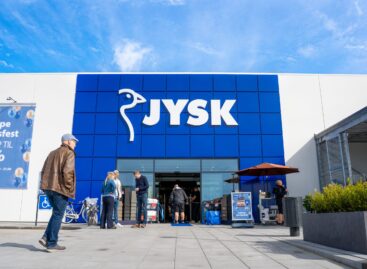Fresh laundry overview: we don’t trust cold washing
Hungarians do not trust washing in cold water, almost half of housewives (45.3%) still wash their clothes at 40 degrees, according to P&G’s October public survey. However, the reduced water temperature, shorter washing cycle and an efficient washing capsule mean not only a smaller ecological footprint, but also a much lower electricity bill.
According to a representative survey by P&G, more than half of consumers (57%) even wash their everyday clothes at 40 degrees, and a fifth of respondents (21%) at temperatures of 50 °C or higher. In the case of towels and bed linen, this ratio is even higher, with 53 percent of housewives washing the former and 46 percent of the latter at a temperature of 50 °C or higher. Washing in water at 30 degrees instead of 40 degrees, however, according to research by the Energy Saving Trust, results in significant (57%) energy savings, it also contributes to the preservation of the shape and color of the washed clothes and their longer lifespan, and last but not least, it significantly reduces the ecological impact of the washing process footprint too. Despite this, according to the survey, only 14.8 percent of housewives wash at 30 degrees, and even for everyday clothes, only a little more than a fifth (22%) use the cold program. This is not only a domestic phenomenon, and since nearly 60 percent of the carbon footprint of washing comes from the user phase, mainly from heating the water, P&G has been conducting extensive consumer education for years with the participation of many of its brands worldwide in order to encourage the switch to colder washing temperatures, which significantly reduces households’ energy consumption and ecological footprint.
Related news
Hungarians don’t replace their furniture – JYSK research reveals a conscious, long-term planning market
🎧 Hallgasd a cikket: Lejátszás Szünet Folytatás Leállítás Nyelv: Auto…
Read more >Related news
(HU) Átadták a SIRHA Budapest 2026 Innovációs Termékverseny díjait
🎧 Hallgasd a cikket: Lejátszás Szünet Folytatás Leállítás Nyelv: Auto…
Read more >HELL CITY has arrived, led by Michele Morrone
🎧 Hallgasd a cikket: Lejátszás Szünet Folytatás Leállítás Nyelv: Auto…
Read more >








